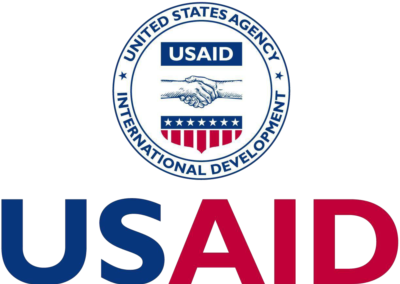Central America
Honduras
Region(s)
Comayagua, Copán, Cortés, Intibucá, Lempira,Ocotepeque,Santa Bárbara and Yoro
Implementor
Honducafe, USAID
Introduction
According to Honduran Coffee Institute (IHCAFE ), Honduras is the largest producer of Arabica coffees in Central America and the third in the American continent, after Brazil and Colombia. In socio-economic terms the coffee sector is very important for the country’s development because more than 120,000 households depend on coffee, and more than one million people are employed for harvesting. According to the statistics of IHCAFE, 92% of producers are in the category of small producers with less than 5 hectares, of which 84% of official owners are men and 16% women. Coffee production faces challenges such as: low production of the farms, inconsistency in the quality of coffee, lack of access to training and technical assistance and financing. In addition, women generally have limited participation in decision making on use of income and investment in farm and household. Honduras is seeing a strong expansion of the coffee producing area which creates environmental risks when natural vegetation is converted into coffee fields. Such conversion may result in reduction and contamination of water supplies and create more erosion, negatively affecting the environment and the resilience of the sector to the effects of climate change.
The Project
Contribute to promote sustainable coffee production, which promotes the protection of natural resources and improving socio-economic development and resilience to the challenges of climate change.
- At least 3,600 households producing
coffee actively involved in training
processes on sustainable production
practices - Increase farmers business skills; 2,400
farming households trained to have better
access to financial services (60%) - 3,200 households trained to increase
access and efficiency use of
agro-input (80%) - At least 2,000 households will also be
supported to access a fund of $3.03 million
for credit through the project - At least 3,600 households have increased
resilience and capacity to adapt to
climate change - At least 3,600 households have access to
training in GAP; at least 2,400 households
trained to adopt GAP (60%), which is
expected to increase productivity relative
to the baseline production with on average
20% in the long run - Improve the protection of forest, water
and soil quality through watershed
management, whereby at least 3,600
farmers are engaged in soil and water
conservation on their farms and 1 million
forest and fruit trees are planted on coffee
farms and watersheds - At least 1,600 women participating in the
project trained on coffee and other topics
of business interest (40%); and 1,600
youth adults (below 35 years old) are
active in the program as trainers of
households (40%) - 30 organizations strengthened by improving
their efficiency in procurement, processing
and selling, in providing services to
producers such as credit provision, better
access to quality agro-inputs and in
facilitating direct selling exporter
Partners
Status
Ongoing
Duration
3 Years
Timeframe
2016 - 2019
Farmers
4,000
% Female Farmers & Youth
20%
Coffee Households
20,000
Areas of work
 Sustainability of land
Sustainability of land Equality of people
Equality of people Prosperity of farmers
Prosperity of farmers
Project themes
 Gender and Youth Inclusivity
Gender and Youth Inclusivity Climate change
Climate change Farm maganement
Farm maganement Yield improvement
Yield improvement Water
Water


